- ALL SERVICES
- • Salesforce Consulting Services
- • Managed Services
- • Simplification of Interfaces
- • Data Migration and Processing
- • Architectural Solutions and Scoping
- • Code Review, QA and Support
- • Applications Development
- • Pre-sales and Solutions Consulting
- • Technical Audit and Support
- • Custom Applications Development
- • AI Apps
BLOG
Navigating ERP Solutions: Custom Systems, Well-Known Providers, and Block-Based Approaches
• Date: June 2023 •
Estimated reading time: 10 minutes
Estimated reading time: 10 minutes
Enterprise resource planning (ERP) software is used by companies to manage routine business operations like accounting, order and project management, risk management, compliance, and supply chain management. In fact, companies that use Salesforce can benefit from ERP as well.
Let's break down why.
ERP helps integrate all departments, including sales, marketing, finance, human resources, and more, into a single source of truth, streamlining processes and driving growth.

ERP Components
The decision to choose between custom solutions, well-known providers, or a block-based approach often depends on the size and needs of the company. In this article, we'll discuss the key considerations for various types of organizations when selecting an ERP system and explore the benefits of each approach.
Contents:
Understanding the Complex Landscape of ERP Systems
ERP systems encompass various aspects of business management, making them both vast and complex. It's essential to first understand the multi-faceted nature of ERP systems and how different approaches can impact your business.
Block-Based Approach: Building a System Piece by Piece
One way to navigate the complexities of ERP systems is by adopting a block-based approach. This method involves selecting a platform that offers flexibility and modularity, enabling you to build a comprehensive management system piece by piece.
By focusing on specific functionalities that align with your organization's needs, you can avoid the common pitfall of investing in a one-size-fits-all solution that may not cater to your unique requirements.
A block-based approach provides several benefits, including:
- Lower upfront costs: you only invest in the modules required for your business
- Greater flexibility: you can add or remove components as your needs evolv
- Faster implementation: you can deploy smaller modules more quickly than a full-scale ERP system
Modern ERP systems need not be confined to a single vendor. Current integration capabilities and open API protocols allow businesses to create flexible management systems, combining tools from different providers. This approach promotes adaptability and enables organizations to leverage the best solutions for their specific needs.
Custom ERP Solutions: A Viable Option for Medium-Sized Companies with a Clear Vision
A custom ERP system might be the right choice for a medium-sized company that has a clear understanding of its needs and future goals. Custom ERP solutions provide the following benefits:
- Scalability to adapt as the business grows
- Cost-effectiveness, especially when a dedicated team is available to handle deployments and support
- Increased control over system functionality and features
On the Salesforce platform, a custom ERP solution can be built using its various tools and services, including Sales Cloud, Service Cloud, Marketing Cloud, and more. These services integrate seamlessly to allow businesses to create a tailored solution that addresses their specific requirements.

Custom Solution in Salesforce
Our company is currently building an internal management system without even relying on any ERP platforms. We have carefully evaluated this decision and are confident that it will benefit us in the long run, primarily due to the infinite control capabilities it provides.
Well-Known ERP Providers: Stability for Larger Companies with Strict Standards and Regulations
For larger organizations with stringent standards and regulatory compliance requirements, it may be more advantageous to consider well-known ERP providers, such as SAP S/4HANA, Oracle ERP Cloud, Microsoft Dynamics 365, Infor CloudSuite, and Epicor ERP. These providers offer:
- Greater stability, which is essential for businesses operating under strict industry regulations
- Established systems that comply with known industry laws
- A wide range of functionalities to accommodate diverse business needs
However, keep in mind that implementing and maintaining these systems can be costly, and any modifications will likely be time-consuming and expensive.
Making an Informed Decision: A Prudent Approach to ERP Implementation
The key to a successful ERP implementation lies in taking a prudent approach and carefully assessing your organization's needs, budget, and long-term goals. Here are some steps to guide you in making an informed decision:
1. Evaluate your organization's requirements and determine whether a block-based, custom, or well-known provider solution best aligns with your needs.
2. Consider starting with a block-based approach, using simple, subscription-based tools that provide essential functionalities before expanding your system as your company grows and better understands its needs.
3. Avoid rushing into an investment in existing solutions with the expectation that they will magically solve all your problems. Instead, focus on building a system that caters specifically to your organization's unique requirements.
Pros and Cons of Each Approach
To further help you make an informed decision, below is a summary of the pros and cons of each approach:

ERP Solution, Block-Based Approach, Pros & Cons

Custom ERP Solution, Pros & Cons

ERP Solution, Well-Known Providers, Pros & Cons
In conclusion, the decision to implement a block-based, custom, or well-known ERP solution depends on the size, needs, and resources of your organization. By carefully assessing your company's requirements and goals, you can make an informed choice that best supports your business's long-term success.
If you need further assistance in evaluating your business needs, and choosing the right approach to building or integrating ERP in your organization, make sure to contact one of our experts.
Download our case study to learn how we implemented a custom Salesforce ERP Solution for a company with multiple data lakes and legacy systems:
Our Articles, News and Salesforce Overviews
Feeling like teaming up with us at Twistellar? We are excited too! Whether you'd like to customize your org, build a bespoke application or integrate a third-party tool, Twistellar is ready to help you.
Get in touch to discuss your Salesforce ideas!


